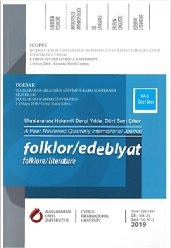Eğitim Durumu Sanal Gerçeklik Ortamının Algılanmasını Önemli Derecede Etkiler mi?
Does the Education Degree Significantly Affect the Perception of a Virtual Reality Environment?
Author(s): AbdulKader El Rawas, Çağın KazımoğluSubject(s): Education, Media studies, Cognitive Psychology, Behaviorism, Social Informatics
Published by: Uluslararası Kıbrıs Üniversitesi
Keywords: Virtual Reality; Education and Virtual Reality; Virtual Reality Exposure Therapy; Virtual Reality User Experience;
Summary/Abstract: Virtual Reality (VR) is a software generated digital environment that is aimed to simulate a realistic experience by creating a variety of stimuli conditions. While VR existed for more than two decades, it has dramatically gained the attention of public domain in recent years due to the portability and cost effectiveness of modern head mounted display (HUD) tools. Currently, the most widely used area of VR in research is Virtual Reality Exposure Therapy (VRET) which is a method risen from the use of VR to potentially help people to treat a specific ailment. Over the last two decades, VRET has been established to be a highly effective way in various areas specifically in helping muscle control of stroke patients, treating various disorders and phobia problems. While there are an overwhelming number of researches undertaken in using VR, to this day it is not clear whether or not the educational degree of users is an impact factor that significantly affects how users perceive a VR system. Many researchers analysed whether or not there would be noticeable differences between VRET and traditional cognitive behavioural therapies (such as VIVO). However, what makes a VR system highly usable or whether or not the educational degree of users significantly impacts the usability of a VR system is still an unexplored area. This paper investigates whether or not there is a significant difference in experiencing a VR system specifically designed to treat acrophobia among people who have a higher education degree compared to those who do not have one. A VR environment was created using Nielsen’s heuristics to treat potential subjects that suffer from acrophobia. Having done so, a quasi-experimental study was undertaken in order to identify whether or not the educational degree of participants significantly impacted their experience in using the VR system. The findings of the study suggest that the educational degree of participants did not significantly impact how they perceived the VR environment. In other words, it was found that educational degree of participants is not a significant influence that affect how realistic and immersive participants found their VR experiences.
Journal: Folklor/Edebiyat
- Issue Year: 25/2019
- Issue No: 97-1
- Page Range: 1-17
- Page Count: 17
- Language: Turkish

